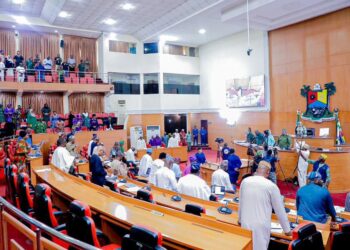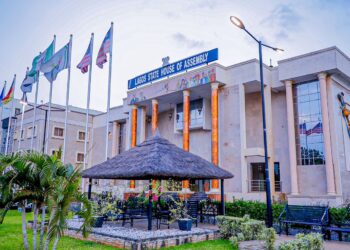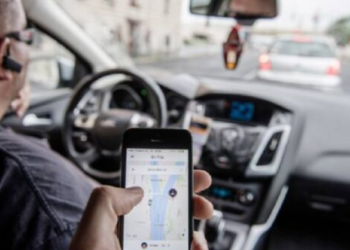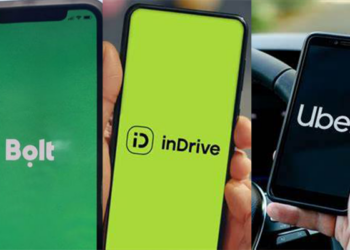With an ambition to be everywhere, especially in cities that have a need for safe, reliable, and efficient transportation; the operations of Uber Nigeria have been hit by two key events in 2020.
The unexpected outbreak of the COVID-19 pandemic, which led to months of movement restrictions and necessitated social distancing rules, cost transportation companies like Uber millions of naira in revenue.
READ: Uber expands food delivery business in a $2.65 billion acquisition
Also, the recent #EndSARS protests which rocked Lagos, Abuja and other parts of the country restricted the full operations of Uber, as some routes like the Lekki Toll Plaza were blocked by protesters.
Recall, that the #EndSARS protests were hijacked by hoodlums who seized the opportunity to loot, vandalize, and burn public and privately owned properties, culminating in an imposed curfew in Lagos and other states. The Lagos curfew – now relaxed (8pm to 6am), continues to affect the optimal running of ride-hailing services like Uber.
READ: Uber increases fares in Nigeria
Nairametrics interviewed Ridwan Olalere, General Manager of Uber Nigeria, and he walked us through some topical points, as Uber braces up for the ‘new normal’ including the plans for Uber Boat and Uber Eats in Nigeria.
How would you assess the Nigerian ride-hailing segment in the face of the ‘new normal’?
We know that the transport industry in Nigeria is facing new and unpredictable challenges. As the coronavirus continues to spread, cities begin to reopen, and the public transport sector begins to move again, it is important to proceed with caution and keep safety in mind.
The travel restrictions put in place by the government were done in order to flatten the curve. In doing so, it is the responsibility of the public transport sector to further understand the detailed guidelines, in order to ensure that measures are in place to put the health and safety of the community first.
READ: Uber withdraws financial forecast, reduces assets value by $2 billion
Thus, it is imperative that we are all prepared to ensure customers are unaffected. At Uber, we are doing our best to support drivers and riders during these unprecedented times; and to limit the spread of the coronavirus, we adapted our safety measures.
In Nigeria, especially in Lagos, the government has introduced some levies on the ride-hailing operators. What is your take on this and does it mean your charges will further go up?
We are positively engaging with the Lagos State Government and relevant stakeholders on the proposed regulations. We are working to better understand how the regulations will impact the future of our business and network of driver-partners.
READ: Tayo Oviosu, the journey from Software Engineer to Pagatech
We will give an update in due course. However, we look forward to working in close collaboration with the government to develop workable and accessible regulations that will benefit all.
There is an allegation of ‘double charge’ against your brand by riders – A situation where the driver’s phone reads higher charge compared to that of the rider. What is your take on such development and your advice for riders?
This type of behaviour would be in clear violation of our Community Guidelines. Fraudulent activity undermines the trust on which Uber is built. That’s why we are constantly on the lookout for fraud by riders and drivers who are gaming our systems.
Uber has automated rules in place that warn and permanently deactivate any account or accounts associated with fraudulent activity. We have also put in place a transparent fare structure that is constantly monitored and we always examine consumer price sensitivities to ensure fares are correctly priced so that riders continue to take trips and drivers have access to more fare-paying passengers.
READ: Lagos regulations on ride-hailing companies, fair or outrageous
What is the update on your Uber Boat?
Uber Boat is the first high profile private sector investment navigating Lagos waterways. The pilot of the service lasted for two weeks after it was launched in October 2019, conveying travellers within specific routes.
We piloted this service because we are aware of the man-hours and productivity that are lost every day due to road traffic in Lagos state, and we are looking at ways to provide commuters with an easy and affordable way to get in and out of the city’s business districts.
What was your plan for the pilot service?
The pilot service focused on getting locals from point A to point B on popular water-based transportation routes, and created a positive conversation around alternative methods of getting around the city more effectively.
Given this was only a pilot phase, Uber is assessing the feasibility of this product in order to assess whether or not to extend. Uber believes the app can help build the transport systems of the future, and we hope that this product will bring that vision to light.
Explore Data on the Nairametrics Research Website
When are you likely to bring Uber Eats to Nigeria?
While we are always looking at new features and products, this is not something we are looking at launching in Nigeria at this time.
If you won’t launch that in Nigeria now, what are the other areas Uber plans to invest in?
Uber’s ambition is to be everywhere – any progressive, forward-thinking city that has a need for safe, reliable, and efficient transportation, we want to be there. We are part of a broader mobility movement, establishing smart cities of the future. We are currently working hard to grow our business in Nigeria.
Each city offers its own unique opportunities, we have found Nigeria to be defined by agility, creativity, and adaptability. Uber is all about providing access to safe, reliable, and affordable rides at any time, whilst providing flexible economic opportunities for drivers who want to be their own boss.






















